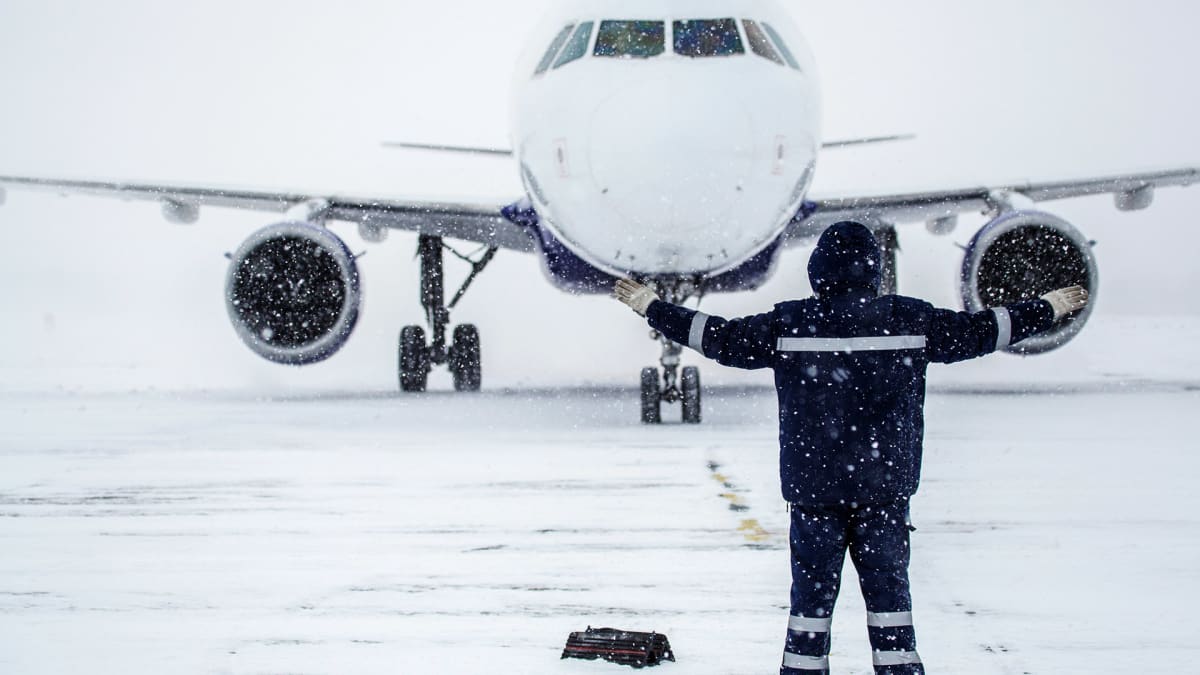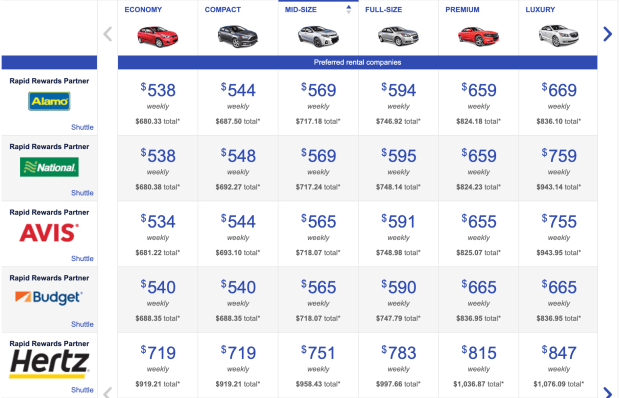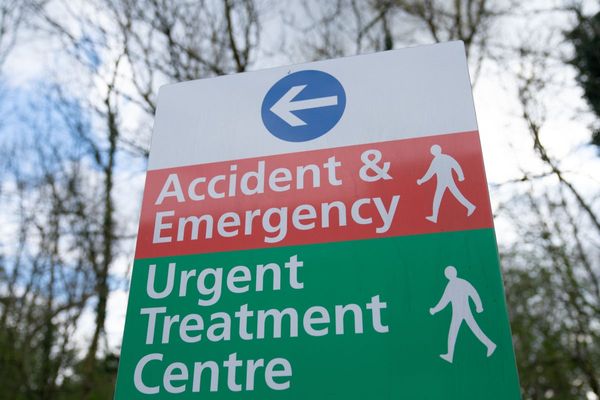
Good luck getting on a flight either into or out of cities such as Denver, Chicago or Las Vegas.
While the weather is finally starting to clear in many places, the bottleneck created over the weekend is still wreaking havoc on those airports.
And Southwest Airlines (LUV) has been called out by the Department of Transportation over the "unacceptable rate of cancellations and delays and reports of lack of prompt customer service."
According to flight tracking website FlightAware, the Dallas airline canceled 63% of its Tuesday flights while over 3,000 flights within, out of or into the U.S. have been canceled in total.
Instead of Waiting For a Flight, There's Always Driving
For those booked for flights, options include navigating understaffed and overextended airline counters and spending hours on hold as tens of thousands other travelers also try to get rebooked.
While transportation laws entitle everyone to get rebooked and eventually brought to their final destination, the widespread nature of the cancellations has left some waiting in the airport for more than 24 hours and choosing to get to where they need to go in another way.
Now that the weather in most Eastern states is looking up and several major highways have been cleared, some may instead choose to drive.
While it'd be a very long drive, picking up a car at Miami International Airport on Dec. 28 and returning it in New York's Kennedy International on Jan. 2 averages under $700 total at rental companies like Avis and Budget (CAR) and at National. The prices were taken from Southwest's "Book A Rental Car" aggregating feature on Tuesday afternoon.
Driving from Chicago to Dallas would take more than 967 miles and over 14 hours of straight driving. Alamo (ALG) offers a rate of $402 for a small car rented during the same Dec. 28 to Jan. 2 period.
Those looking for the sun would spend an average of $800 to get a car in Detroit and drop it off in Los Angeles.
While this may even cost less than getting a last-minute ticket, driving more than 2,000 miles during uncertain weather conditions is truly for the hardened driver. There is also, of course, the price of gas to consider. (Cancellations often push some to book a new flight out-of-pocket and fight for a refund later.)

Southwest
So It Looks Like I Won't Be Driving. What Are My Other Options?
With the exception of some parts of the Northeast, the U.S. does not really have infrastructure for much high-speed cross-city train or bus travel. The distances are just too large and spread out for anything but a plane or individual car.
That said, someone traveling between big cities like New York and Chicago does have the option of Amtrak -- prices for trips departing a few days from now currently start at $173 and cap at $232.
While requiring you to spend a minimum of 19 hours on the journey, it is still a faster and safer experience than trying to drive the same distance in a car with only one driver.
Good luck getting those tickets, though, as most journeys on Dec. 28 and 29 have sold out. A train between Atlanta and New York would take 18 hours and currently costs around $300. By contrast, a Greyhound bus between the two cities would just take a few hours more and currently sells for $242.
Last-minute ticket prices often bite, but trying to wait it out in a hotel may be even more expensive.
Those with certain credit cards or insurance plans will get their hotel stays compensated, but for those without, trying to get a room last-minute during the holidays can expect to pay over $300 in cities like New York, Orlando and Washington.
More Southwest Coverage:
- Southwest Airlines Explains What Went Wrong (and Where the Blame Lies)
- Twitter Reaction to Southwest Air's Epic Failure Reveals Stunning Scenes
- Southwest Airlines Faces Investigation Over Flight Cancellations
- Can Southwest Air Stock Take Flight Despite Cancellations?
- What to do if Your Southwest, Alaska or Other Flight Gets Canceled
- FAA Has Serious Southwest Airlines Safety Concerns







